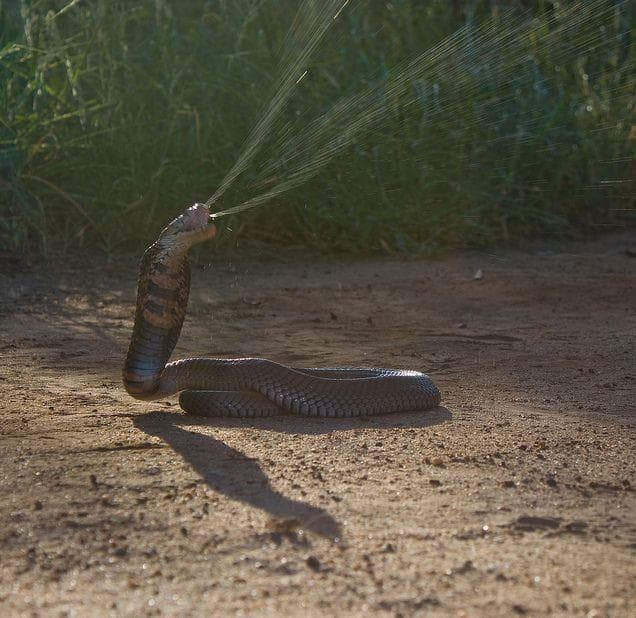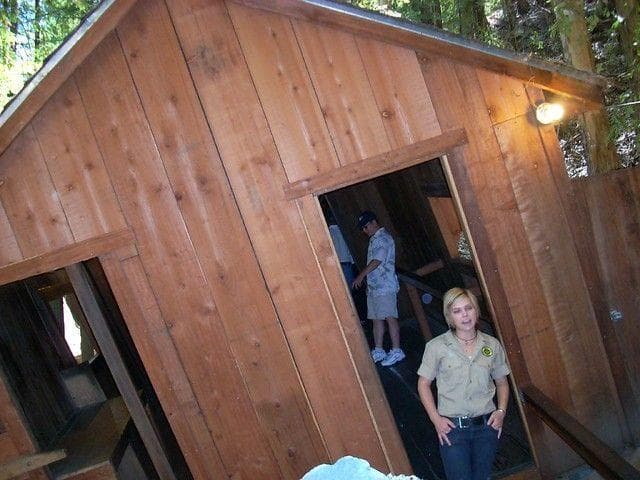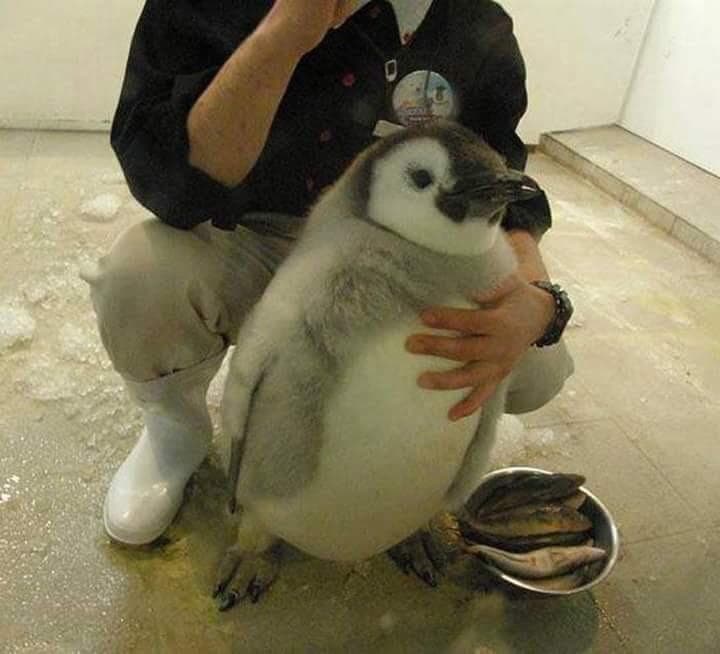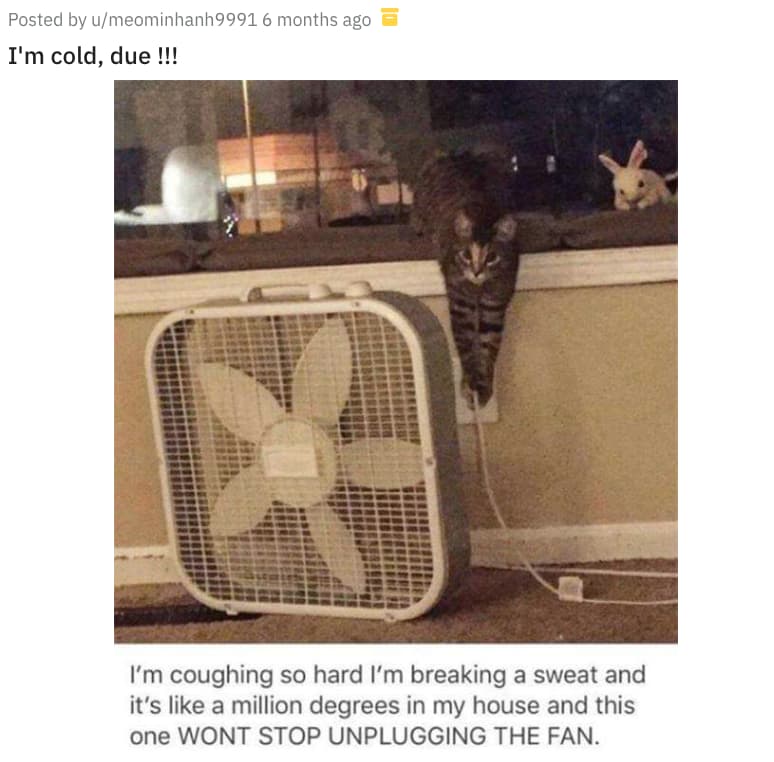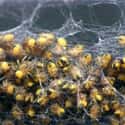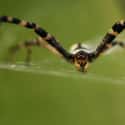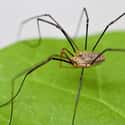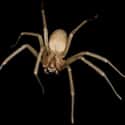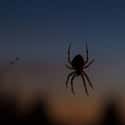(#2) If You're Bitten, Baby Spiders Can Hatch Inside Your Flesh
The Myth: There might be baby spiders hatching under your skin right now. Spiders are known to bite humans and then lay their eggs inside the wound. Eventually, these eggs will hatch and a horde of baby spiders will emerge from your skin. This happened to a woman who was bitten on the cheek, and the babies emerged from the swollen lesion.
The Reality: While absolutely horrifying, this story is also absolutely false. Spiders do not lay eggs on or inside of humans for obvious reasons. Most spiders actively avoid humans whenever possible, and they definitely don't consider us to be qualified babysitters. There is no evidence to suggest that anything even remotely similar to this story has ever occurred in human history, so rest assured you are not host to a spider nursery.
(#11) Tea Brewed With Spiders In The Pot Is Dangerous
The Myth: A family of six perished after they left a tea kettle full of water out overnight. A spider crawled in and secreted venom into the water. The next day, the family used the leftover water to make tea and succumbed to the venom soon after drinking it.
The Reality: Even if you drink water with a spider in it, you're not going to feel the effects of its venom. Venom and poison are two very different substances. While simply ingesting poison is enough to trigger its effects, venom has to be injected directly into the bloodstream. That's why venomous spiders have fangs - to efficiently inject venom into their prey. Additionally, the venom would be so diluted by the water it's unlikely it would have any effect. After boiling it, your spider-venom tea is as harmless as Earl Grey.
(#8) Baby Spiders Live In Bananas
The Myth: You better watch what you eat. Bananas are a haven for spider eggs, which can typically be found near the tip. Various species of spiders are known to lay their eggs in the flowers of the banana plant, and they can end up making their way inside the bananas themselves.
The Reality: This myth likely started around 2002, although some claim the story has existed since the 1960s. While it's true spiders can sometimes make their way inside a banana shipment, they don't enter the bananas themselves. No species of spider lays eggs in the flowers of banana plants, though they do occasionally lay eggs on banana leaves. In extremely rare cases, a spider may lay eggs on a banana. It's impossible for them to get inside the banana, however, so this urban legend is nothing but a myth.
(#12) The Daddy Longlegs Is The Most Poisonous Spider On Earth
The Myth: The daddy longlegs is an extremely venomous spider, but it isn't a threat to humans. Its fangs are too short to penetrate our skin, saving us from this hyper-venomous beast.
The Reality: First of all, most daddy longlegs aren't even spiders. They are their own branch of the arachnid family known as Opiliones. These arachnids only have two eyes and can't produce silk. There are long-legged spiders in the Pholcidae family, but they have only recently been nicknamed "daddy longlegs spiders" due to public confusion. Opiliones have no venom, and spiders in the Pholcidae family are not known to bite humans, so their venom has never been tested. It's impossible to know if they are "the most venomous" spiders because we don't even know how venomous they are in general.
(#3) Californians Fear The Brown Recluse
The Myth: The venomous brown recluse spider is a terrifying threat in California, and locals are right to be terrified.
The Reality: While it's true that Californians fear the brown recluse, they really have nothing to worry about. That's because brown recluses don't even live in California, despite what people will tell you. The black widow is the most dangerous spider in California, and their bites only cause victims to perish in 5% of cases.
(#1) Spiders Crawl In Your Mouth While You Sleep
The Myth: The average person eats roughly eight spiders a year while sleeping. This mostly occurs as spiders inadvertantly crawl into our mouths as we snooze.
The Reality: Spiders haven't evolved over millions of years to climb into random animals' mouths - that's a perfect recipe for doom. According to biologist Bill Shear, spiders don't even really perceive us in the way we perceive them. To them, we're so big that we're just part of the landscape. They tend to avoid us whenever possible, including when we're in bed. The slight vibrations our bodies give off are enough to trigger a spider's senses and let it know it needs to back away from danger.
New Random Displays Display All By Ranking
About This Tool
For many people, the spider is one of the most terrible animals in the world. They are small, but they can bring huge fear. There are many types of spiders, not all varieties have fatal toxicity, but their unique appearance is sufficient to cause people to disgust. The reason why spiders make so many people are afraid because of some of the long-awaited horror legends and myths.
Most spiders are harmless, people have learned to have a total of thousands of years. The ancient Greek already had related legends about the spider and has been circulating. You could know 12 creepy myths and urban legends about spiders in this random tool.
Our data comes from Ranker, If you want to participate in the ranking of items displayed on this page, please click here.



